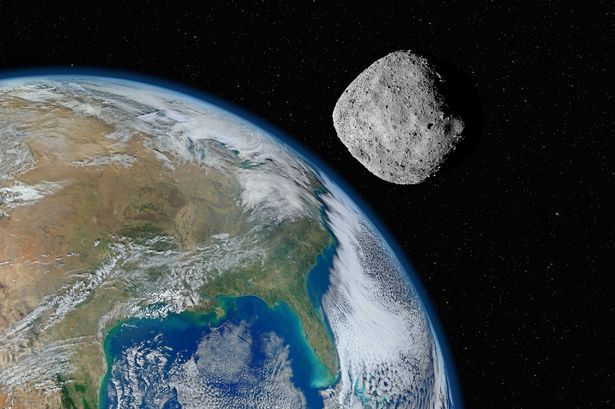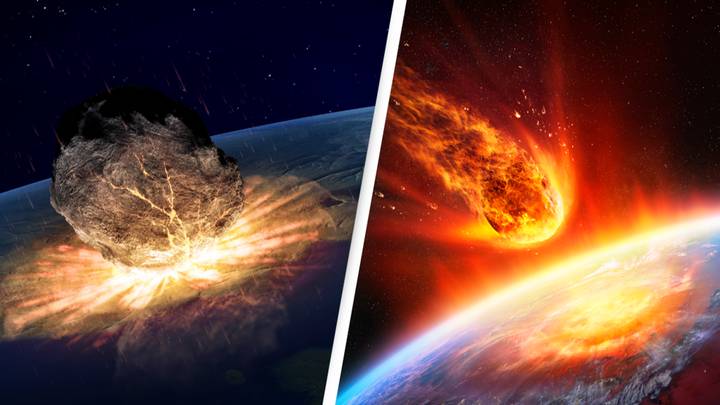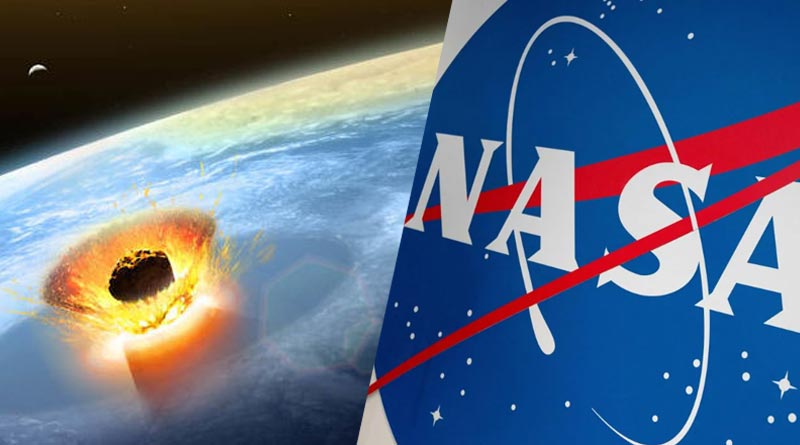Asteroid Could Hit Earth With Force Of 22 Atom Bombs in 2182, NASA Predicts Dates.
NASA scientists are in the final phases of a mission aimed at averting a potential asteroid collision with Earth 159 years from now. The asteroid in question is named Bennu, and experts warn of a potential impact on September 24, 2182. This mission showcases NASA’s dedication to safeguarding our planet from potential celestial threats.
Although the chance of the asteroid hitting Earth is relatively low, at 1 in 2,700, experts are not willing to take any risks when it comes to the safety of our planet. To gather vital data and prevent a potential catastrophe, NASA sent a spacecraft to Bennu seven years ago. The goal was to collect samples from the asteroid in order to better understand its characteristics and potential impact risks, allowing for proactive measures to avert disaster.
What is the Bennu asteroid?

Bennu was first discovered in 1999 and orbits relatively close to Earth approximately every six years. This asteroid is estimated to be as large as New York’s Empire State Building and possesses a destructive force equivalent to 22 atomic bombs.
In 2020, NASA conducted a daring operation called “Touch-and-Go” (TAG) using the OSIRIS-REx spacecraft. It successfully landed on Bennu’s surface and collected rocky material from a specific sample site known as Nightingale. This mission was a significant step in understanding and potentially mitigating the risks associated with Bennu’s trajectory.
What is NASA doing to avert Bennu colliding with the Earth?

Bennu, considered an ancient relic within our solar system, is estimated to have existed for over 4.5 billion years, as per scientific assessments. Initially designated as 1999 RQ36, it received the name Bennu in 2013 through a contest won by a Class 3 student named Michael Puzio. This naming reflects the collaborative and educational aspect of space exploration.
“We are now in the final leg of this seven-year journey, and it feels very much like the last few miles of a marathon, with a confluence of emotions like pride and joy coexisting with a determined focus to complete the race well,” as per Rich Burns, project manager for OSIRIS-REx at NASA’s Goddard Space Flight Centre in Greenbelt, Maryland.
The asteroid samples collected during the OSIRIS-REx mission are set to return to Earth next week, with their anticipated reentry into the Earth’s atmosphere scheduled for approximately 3.42 pm British Summer Time (BST) on Sunday.
When the OSIRIS-REx spacecraft is approximately 63,000 miles (approximately 101,388 kilometers) from Earth, a capsule, roughly the size of a refrigerator, containing the samples will be launched back towards our planet. During its return journey, it will travel at nearly 28,000 miles per hour and experience temperatures as extreme as molten lava. This daring reentry marks a crucial phase in bringing the asteroid samples safely back to Earth for further study.
To ensure a safe landing, parachutes will be deployed in the Utah desert to slow down the capsule’s descent to a speed of 11 mph. The landing site is the Department of Defense’s Utah Test and Training Range, located southwest of Salt Lake City, as reported by Mirror.
The recovery team is keen to retrieve the capsule promptly to prevent any potential contamination of the samples collected from Bennu.
The mission’s outcomes hold the potential not only to help mitigate potential asteroid threats but also to provide valuable insights into the origins of life on Earth. It represents a significant scientific endeavor with far-reaching implications.
This mission bears some resemblance to the 1998 movie “Armageddon,” starring Bruce Willis. In the film, Willis’s character prevents a colossal asteroid from colliding with Earth by landing on it and splitting it in two using a nuclear bomb. While the movie is a work of fiction, it shares the theme of averting a catastrophic asteroid impact, similar to the real-life efforts of NASA and other space agencies to safeguard our planet from potential celestial threats.
The successful return of asteroid samples from Bennu, following a daring journey and parachute-assisted landing, is not only a scientific triumph but also holds the potential to unlock secrets about our solar system’s origins. Like this post? Don’t forget to check out our other short stories in our Quick Read section

